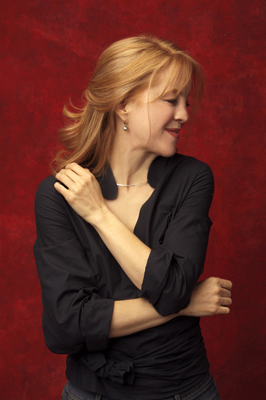At the National Endowment for the Arts party last week announcing the 2008 of Jazz Masters at least one celebrant was hoping the award would kick-start a professional cycle.
“You know,” said the 80-year-old trombonist/composer, paraphrasing the sequence of recognition he said Fernando Lamas had once applied to his career arc: “Who is Tom McIntosh? Get me Tom McIntosh! Get me a Tom McIntosh type! Get me a young Tom McIntosh! Who is Tom McIntosh?”
Who indeed?
Internat’l jazz journalists convene, talk, listen (eat, drink, argue, make merry)
More than three dozen pundits and several hundred devotees of “jazz” old and new, free-form and familiarly-structured, abstract and/or pure blue — writers, broadcasters, editors, photographers, new media specialists and teachers (most of whom fulfill several of those roles simultaneously) — from some 20 countries — pondered the big picture – “Jazz in the Global Imagination” at Columbia University’s Graduate School of Journalism lecture hall Saturday in the first such international conference ever held in the U.S.
It was sponsored by the Center for Jazz Studies at Columbia University, produced by its director George E. Lewis, and consulted by the Jazz Journalists Association. That’s an organization I’m deeply involved with, which hosted auxiliary events — a party and jazz tour of Harlem, a Sunday brunch sponsored by Jazz at Lincoln Center so hip that Wynton Marsalis attended.
Intern’l jazz journalists convene in U.S. — a first
“Jazz in the Global Imagination: Music, Journalism and Culture,” the day-long, public and free symposium at the Columbia University Graduate School of Journalism auditorium on Saturday, Sept. 29, is evidently the first international conference of jazz journalists to take place in the U.S. Why did we wait so long?
Even if there’s been one before, the slam-bang panel discussions sponsored as final compent of the 10-day Columbia/Harlem Festival of Global Jazz by the Center for Jazz Studies at Columbia, in partnership with the Jazz Journalists Association, will be historic for writers, readers, listeners and musicians of a certain persuasion, me among them. In fact, full disclosure: I’m proud to have consulted to trombonist-composer-improviser-educator-MacArthur fellow George E. Lewis on this project, which brings more than 30 renowned, accomplished senior and emerging journalists from Japan, Russia, Turkey, South Africa, the UK, continental Europe, Canada and Mexico besides the U.S. together in contemplation of the big issues: the intersections of arts reportage and analysis with globalization and new technology, improvisation and fast-morphing traditions.
Joe Zawinul at 65, The Wire
Interview with Joe Zawinul, The Wire, 1996
Joe Zawinul, in a soundful way
Zawinul (1932-2007) is a world-renowned keyboardist-composer who considered himself in the lineage of classic musicians emerging from his birthplace, Vienna, Austria. Once backstage after a performance circa 1980 he stormed at Down Beat editors who’d come at his command to “discuss” a bad review of Weather Report’s just-released album 8:30 — “You do not give Beethoven two stars! You do not give Zawinul two stars!” No, he wasn’t Beethoven, but his music lives beyond his personal mortality — so yes, Joe Zawinul is one of the immortals.
Improv on the Speed River
Guelph, Canada – a pleasant university town nestled in the forrested low meander of the mis-aptly named “Speed River” is invigorated by its weeklong jazz festival, scholars’ colloquium, and $4 million research grant from Canadian governmental forces, devoted to study of music improvisation’s relation to social change and community-sustenance.
Jazz on the run
Since such last gasps of New York’s summer jazz convocations as the
Charlie Parker Jazz Festival — my trip to the Chicago Jazz Festival — this week’s colloquium at University of Guelph titled “People Get Ready: The Future of Jazz is Now!” coinciding with the 14th annual Guelph Jazz Festival — and the first international conference of jazz critics to be held in the U.S., “Jazz in the Global Imagination: Music, Journalism, and Culture” produced for the Columbia-Harlem Festival of Global by George E. Lewis, newly named director of Center for Jazz Studies of Columbia University (with my consultation) scheduled for all day September 29, there’s oodles of interesting news, good stories, music and events worth reviewing and previewing.
Jazz Festivals
….good for cities, musicians, audiences. Hear it on NPR ![]()
Giving Max Roach, the drummer, some
Drummer Max Roach, (Jan 1, 1924 – Aug. 16, 2007), personified the jazz-beyond-jazz ethos: mastering the complex, nuanced art that preceded him, plunging in to create new work based on his own ideas, never abandoning that path. He was a man of social engagement as well as aesthetic convictions.
Mingus Among Us
“So Long Eric”, a 5:29 jazz video break, giving one pause: Wither small group ideas now?
Charles Mingus with saxophonists Eric Dolphy & Clifford Jordan, pianist Jaki Byard, drummer Dannie Richmond, Belgium 1964 — heroes, living. (Music comes up first– raucous “Fables of Faubus” — click “Watch Videos” at bottom of page)
Not for Wimps

Maria Schneider – photo courtesy of the artist
ArtistShare Delivers for Maria Schneider
Sky Blue — a web-based “fan-funded” recording project — garners the Grammy-winning jazz orchestra leader better than half her recording (over)budget, three weeks after release. News, plus my author’s edit of Down Beat‘s July cover story.
Mr. Sensitive befouls paradise
Used to be jazz musicians were U.S.’s best ambassadors. Pianist Keith Jarrett’s prickly reaction to ardent fans’ cellphone photography as his trio walks onstage at the Umbria Jazz Festival — see it on Youtube.com (56 secs) — reverts to another type: ugly American.
